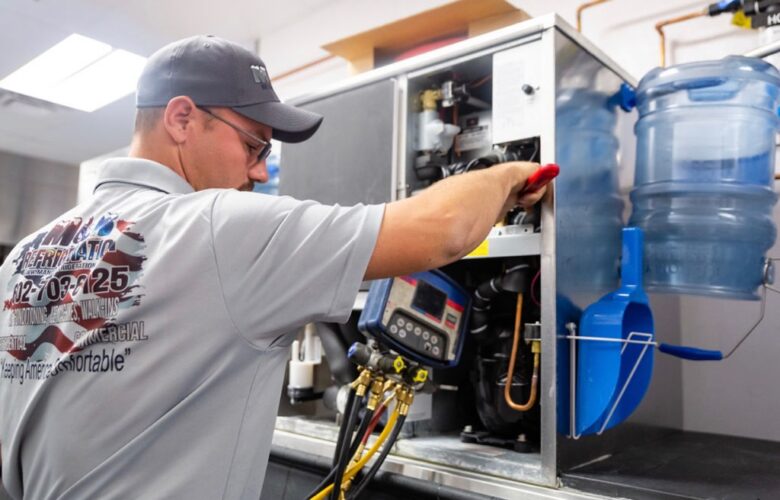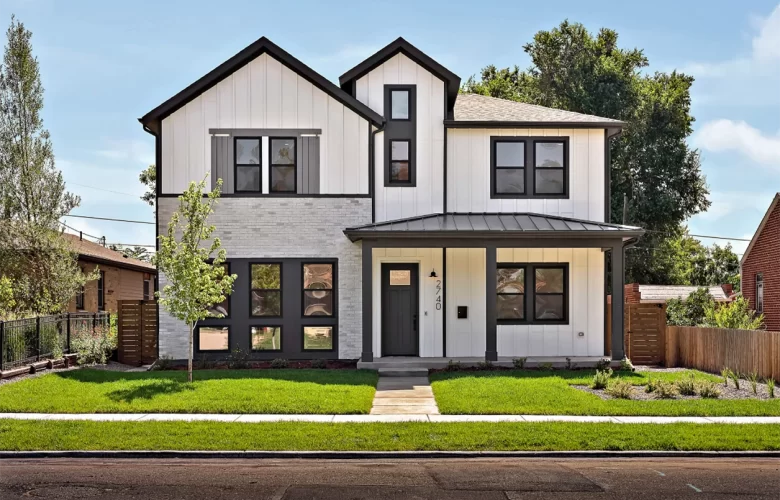As the temperatures rise during the hot summer months, homeowners are left wondering about the best ways to maintain comfort levels inside their homes. One solution worth exploring is heat pumps, which are known for their versatility in both heating and cooling applications. In this article, we’ll discuss how a heat pump works in summer and its cooling efficiency in hot weather.
How Does a Heat Pump Work in Summer?
Heat pumps work by transferring heat from one place to another using a refrigeration cycle. During the winter, they extract heat from the outside air and release it inside to raise the temperature of the living space. In the summer, the process is reversed: the heat pump withdraws heat from the indoor air and releases it outside, effectively cooling the home. This process is accomplished using a reversing valve that alters the flow of refrigerant. To know more about the benefits of heat pumps, you may check out this blog. This way, you will have a better understanding and will be able to make an informed decision.
Cooling Efficiency in Hot Weather
The efficiency of a heat pump in cooling mode is determined by its Seasonal Energy Efficiency Ratio (SEER). Higher SEER ratings indicate greater efficiency in managing energy consumption while cooling your home. Modern heat pumps, equipped with advanced features such as variable-speed motors and two-stage compressors, can have SEER ratings of up to 20 or higher.
One of the factors that contribute to heat pumps’ efficiency is their use of variable-speed compressors. These compressors can adjust their speed depending on the cooling demand, providing consistent comfort levels and reducing energy consumption compared to traditional compressor systems. So during hot summer days, a heat pump with a variable-speed compressor will be able to maintain comfortable temperatures and run less often, thus consuming less energy, making it more cost-effective and sustainable.
Are Heat Pumps Suitable for All Climates?
Heat pumps can be an effective cooling solution; however, their performance may vary depending on the local climate. In regions with mild to moderate temperatures, heat pumps can efficiently cool homes without requiring significant amounts of energy. However, in areas with extreme heat and high humidity levels, heat pumps may struggle to maintain desired indoor temperatures, making them less suitable for such climates.
For the best advice on HVAC systems suitable for your area, consult with a trusted local professional. A qualified professional for HVAC in Sandy Springs can help you determine the best system for your home, ensuring optimal performance and long-term savings. They can also help you with heat pump installation and maintenance to keep your system running smoothly.
To Conclude
Heat pumps are a great option when it comes to cooling your home during summer. With advanced features such as variable-speed motors and two-stage compressors, modern heat pumps can provide efficient cooling with minimal energy consumption. However, the efficiency of heat pumps will depend on the local climate and humidity levels, so it is best to consult an HVAC professional to determine the best cooling solution for your area. With the right system in place, you can enjoy comfortable temperatures and lower energy bills all summer long!




